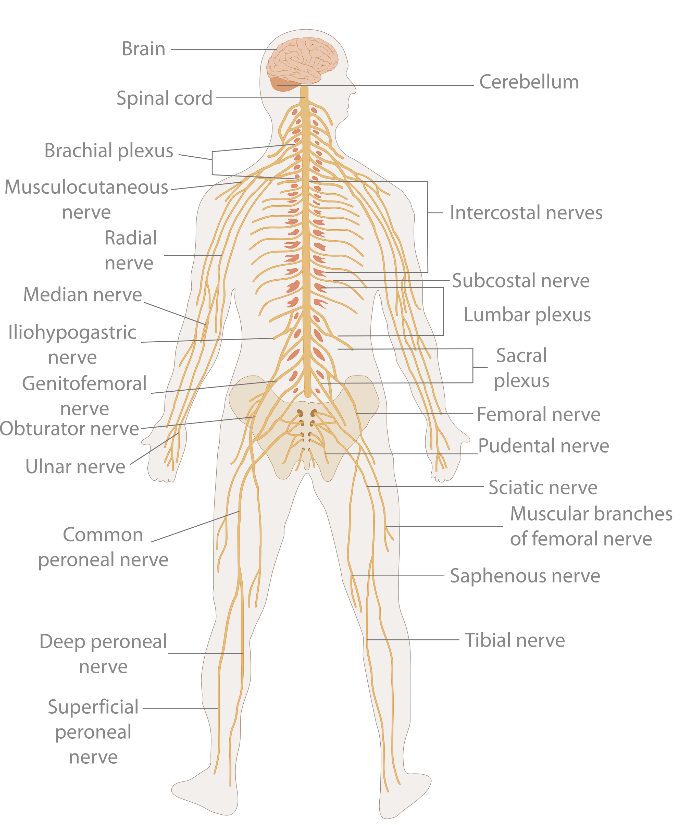- Patients
- Exploring cancer care
- Conditions we treat
- Central nervous system (CNS)
Central nervous system (CNS) tumours treatment
Central nervous system (CNS) tumours treatment
Primary brain tumours
Malignant brain tumours are rare in adults with around 5,000 new cases a year diagnosed in the UK, accounting for approximately 2% of all new cancer cases (Other brain tumours may be confirmed as benign and some are undiagnosed due to their position preventing a biopsy).
Higher incidence in men, male to female ratio is 1.5:1. Adult brain tumours can occur at any age, the incidence rises from the age of 30 with the highest incidence being between 50 and 70 years of age. Most of these arise in the frontal, temporal and parietal lobes of the cerebrum, 86% are gliomas (includes astrocytomas, ependymomas, oligodendroblastomas and mixed gliomas).
Risk factors and causes are not well understood but radiation is recognised as a cause and radiotherapy for primary brain tumours is associated with a 55% increased risk of further brain tumours.Risk factors include some genetic conditions such as neurofibromatosis, Li-Fraumeni syndrome and a family history of CNS tumours, diabetes in females, Parkinson’s disease and HIV infection or AIDS. (Secondary brain tumours have spread from tumours elsewhere in the body e.g. lung).
The brain-main parts are:
- The cerebrum (two halves with four lobes on each side- frontal, temporal, parietal and occipital)
- The cerebellum
- The brain stem
- The pituitary gland

Symptoms of CNS tumours
Symptoms of CNS tumours
What are the symptoms of CNS tumours?
- Headaches
- Nausea and vomiting
- Drowsiness
- Seizures
Other symptoms may be related to the functions of the area of the brain where the tumour has developed.
Changes in personality and intellect; uncoordinated walking or weakness of one side of the body; loss of smell; occasional speech difficulties.
Difficulty speaking or understanding words; problems with writing, reading or doing simple calculations; difficulty coordinating certain movements, and finding your way around; numbness or weakness on one side of the body.
Seizures, which may cause strange sensations: a feeling of fear or intense familiarity (déjà vu), strange smells or blackouts; speech difficulties; memory problems.
Loss of vision to one eye, which the person may not notice at first and may sometimes be discovered during routine eye tests.
Lack of coordination; slurred speech (dysarthia); unsteadiness; flickering involuntary movement of the eyes (nystagmus); vomiting and neck stiffness. Brain stem: unsteadiness and an uncoordinated walk; facial weakness, a one-sided smile or drooping eyelid; double vision; difficulty speaking and swallowing; vomiting or headache just after waking (this is rare). Symptoms may appear gradually. Meninges – headaches, sickness and problems with sight and movement.
The pituitary gland produces lots of different hormones so a tumour in the gland can cause a variety of symptoms including: irregular periods; infertility; weight gain; lethargy; high blood pressure; diabetes; mood swings; and enlarged hands and feet. A tumour in the pituitary gland can also cause pressure on the nerves to the eyes, causing tunnel vision.
Book an appointment
If you’re worried about symptoms or you have any concerns, contact us today to speak to our friendly team
Diagnosis
Diagnosis
- Physical examination (will include neurological test, checking muscle strength, reflexes, sensation, eye tests and hearing tests)
- Blood tests
- CT scans
- Brain MRI scan
- PET/SPECT scan
- Surgical biopsy (surgery may be to remove a sample of brain tissue to enable analysis followed by further surgery or in some cases the intention of the initial surgery may be to remove part or all of the tumour)
- Lumbar puncture
- Neuroendoscopy
Treatments
Treatments
Radiotherapy
Radiotherapy, also called radiation therapy, kills cancer cells. It’s used in the early stages of cancer treatment or after it has started to spread. It can also be used to relieve pain and discomfort from cancer that has spread.
Chemotherapy
Chemotherapy is medication that treats your cancer. The drugs kill cancer cells, preventing them from dividing and spreading further.
Read next

Doctors
Our doctors
GenesisCare works with many leading and experienced cancer doctors who share our commitment to providing excellent patient care

Centres
Our centres
With 440 centres across the world, we're continuing to diagnose and treat without delay, bringing specialist care closer to our patients in the UK, Spain, Australia and the US.

Cancer care
Exploring cancer care
We are the UK’s leading private provider of advanced radiotherapy and cancer care. We offer fast access to the latest technology and treatments that has been proven to make a difference.

Cancer care
How can we help?
Accessing world-class cancer care is easier than you think. Follow these easy steps to get treatment, tests and scans, or a second opinion at GenesisCare, and find out the different ways of funding your cancer care.

Patient support
Patient stories
We believe patients can be our teachers and trusted advisers, benefiting from their unique experiences.
